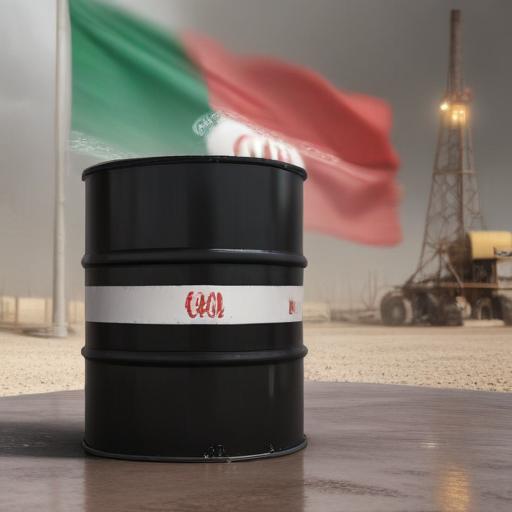Iran’s oil exports, which predominantly flow from the Port of Kharg Island Oil Terminal—an essential hub in the Persian Gulf—are facing new risks due to escalating tensions with Israel. Recent attacks reportedly conducted by Israeli drones on Iran’s South Pars natural gas field and a refinery have ignited concerns regarding the stability of energy supplies from the region.
Analysts suggest this might be just the beginning, as the Israeli government appears poised to target Iran’s energy infrastructure further if its civilians are threatened. Richard Bronze, a geopolitical analyst, remarked that the attacks symbolize Israel’s readiness to disrupt Iranian energy sources, which are vital not only for Iran’s economy but also for its domestic energy needs.
The Kharg Island terminal is particularly crucial, with nearly all of Iran’s oil exports departing from its facilities. Despite Iran developing a secondary terminal in Jask, its limited capacity underscores the vulnerability of Iran’s oil export capabilities. Should tensions rise significantly, concerns grow about the potential for energy supply disruptions that could have widespread implications for global markets, especially those reliant on Middle Eastern oil.
Oil prices have already seen a spike following the attacks, prompting fears that any further escalation could send prices soaring and upset international supply chains, especially in Asia. The recent hostilities arise at a delicate time for Iran’s oil sector, which has been gradually recovering from years of sanctions and reduced production levels. Since 2020, Iran has increased its oil production by approximately 75%, reaching around 3.4 million barrels per day.
On the other hand, Israel’s energy sector is also viewed as vulnerable. The Israeli government has proactively halted production at key offshore natural gas platforms as a precaution, revealing its fragility in the current geopolitical environment.
This ongoing conflict not only puts Iranian energy exports at risk but also threatens regional stability. It remains to be seen how direct attacks on energy infrastructure might spur retaliatory actions from Iran, considering the nation’s efforts to rebuild its economy and bolster its nuclear ambitions post-sanctions.
Amid these challenges, the international community is closely monitoring the developments, as the conflict could pivotally influence energy prices and availability across the globe, bringing into sharper focus the necessity for a stable and cooperative approach to Middle Eastern energy security.
